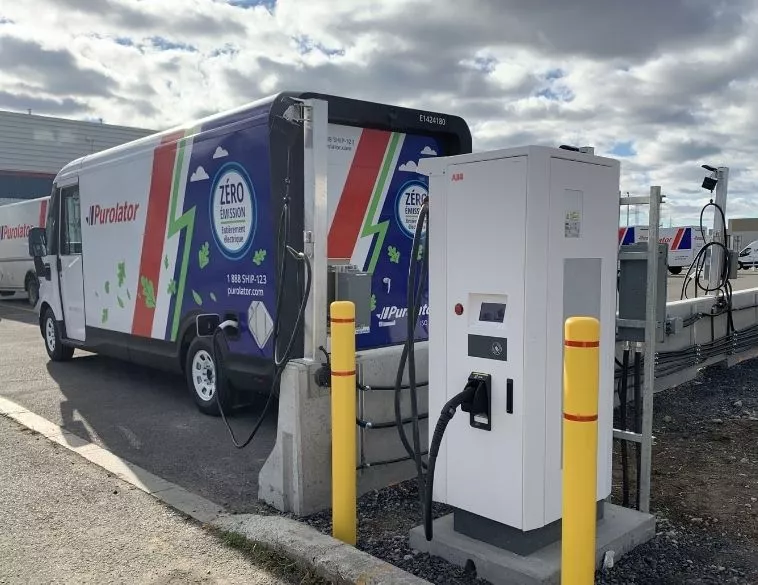Labatt Brewery Committed to Electrifying Operations in Quebec

Labatt has just acquired 10 Volvo VNR Electric trucks for their logistics operations in Quebec.
Labatt's $5.4 million investment in the new electric truck fleet received support from both federal and provincial governments: $750,000 from the Government of Canada's Zero-Emission Medium- and Heavy-Duty Vehicle Incentive Program, and $875,000 from Quebec's Écocamionnage program.
Labatt aims to achieve net-zero emissions across all their operations by 2040. Regarding their vehicle fleet transition, the company favours electrification over biofuels and alternative fuels.
"We're committed to innovation with a clear focus on electric vehicles to diversify our fleet," says Philippe Côté, Logistics Director for Labatt Quebec. "While other technologies exist, we believe electricity is our best path to carbon neutrality. As our diesel vehicles reach the end of their lifecycle, we'll be transitioning to electric trucks."
Electric trucks operational in Montreal
Labatt's vehicle fleet in Quebec consists of 175 diesel trucks that handle deliveries from their 11 distribution centres.
"Labatt in Quebec, unlike other Canadian provinces, operates its own vehicle fleet to make deliveries directly to our 9,000 customers. In other provinces, we work with agencies to handle deliveries."
Labatt's transition to EVs is just beginning. Five electric trucks have been operating from the Lachine and Bois-des-Filion distribution centres since August; the other five will be delivered by year-end. The Volvo VNR trucks offer a range of up to 280 km with a four-battery configuration providing 300 kWh of usable energy.
"Our electric trucks are currently being used in the most populated neighbourhoods, but the main factor we took into account in our deployment strategy was the daily route distance from a logistics perspective," explains Côté. "In an urban environment like Montreal, we cover less mileage, and with current technology, it was the best place to start our transition to electricity."
Charging infrastructure
The electric trucks covering the Montreal region from the Lachine distribution centre travel an average of 50 km per day, while at the Bois-des-Filion distribution centre on the North Shore, the average distance is 110 km per day.
The charging infrastructure supporting the Volvo trucks includes three charging stations in Lachine and two others in Bois-des-Filion. While electricity availability isn't an issue for Labatt's facilities, Côté is planning tighter energy management once the technology becomes available.
"We want to integrate the required equipment into our fleet to properly measure our consumption with the goal of, ideally, pre-programming our truck charging based on two variables: when electricity is widely available and during the most cost-effective time slots,” he says. “But we don't have this type of equipment yet."
Significant savings
For Labatt, the main advantage of electric trucks remains fuel savings, which helps reduce delivery costs.
"On average, although diesel prices can fluctuate, and load weights can vary, an electric vehicle can lead to up to 88% savings compared to a diesel truck," emphasizes Côté.
Additionally, Labatt's delivery teams have undergone thorough training on operating the electric vehicles. Driver feedback has been overwhelmingly positive, with operators praising the trucks' ease of handling, exceptional cab visibility, and quiet operation.
Although Labatt is just starting their electric journey, the rollout is proceeding according to plan, and the transition has been well-received across the organization. As for sharing lessons learned and best practices, that will have to wait a bit longer.
"When we've completed a full year of testing with these electric trucks, we'll be better able to see the challenges,” Côté concludes, “but for now, the transition is working well. For me, one of the most important issues remains the health and safety of my workers. Also, I'm eager to see how the trucks will perform in terms of range in winter conditions compared to our projections."





